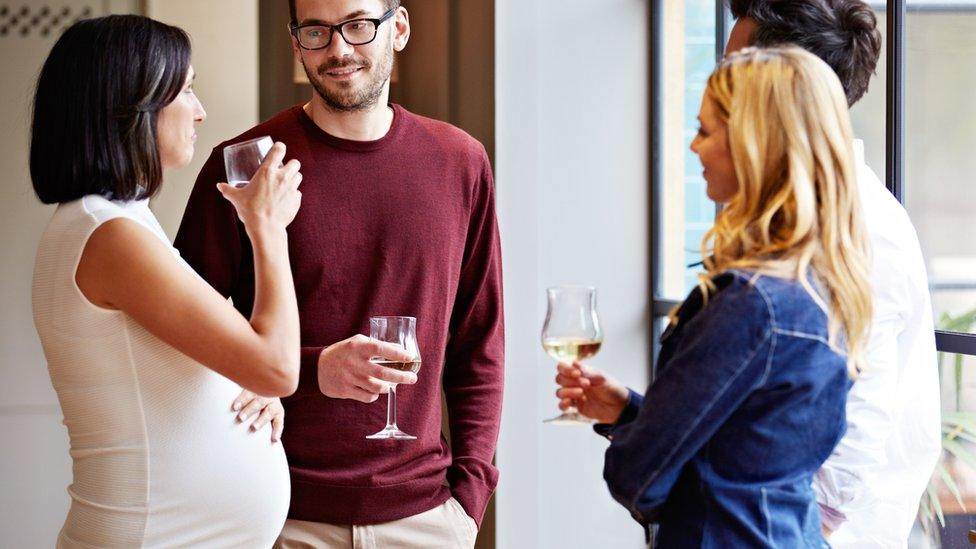Parents giving children alcohol too young, researchers say
- Published
- comments
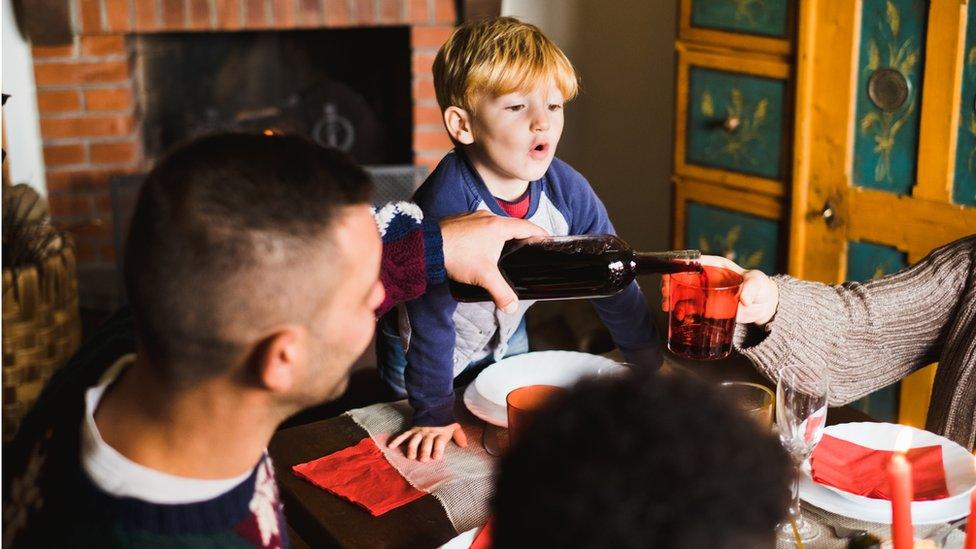
Some parents give their children alcohol from an early age
Parents could be storing up problems for their children by introducing them to alcohol too young and ordering takeaways too often, researchers warn.
Two universities found that one in six parents gives their children alcohol by the age of 14,, external when their body and brain are not yet fully developed.
Many parents may believe they are acting responsibly - but that's not backed up by research, experts said.
Regular takeaways were a risk to the heart, a separate study said., external
A team of researchers from St George's, University of London, surveyed nearly 2,000 nine and 10-year-olds on their diets and found that one in four ate takeaways at least once a week.
This group had higher body fat composition from consuming too many calories, and lower levels of vitamins and minerals than children who ate food cooked at home.
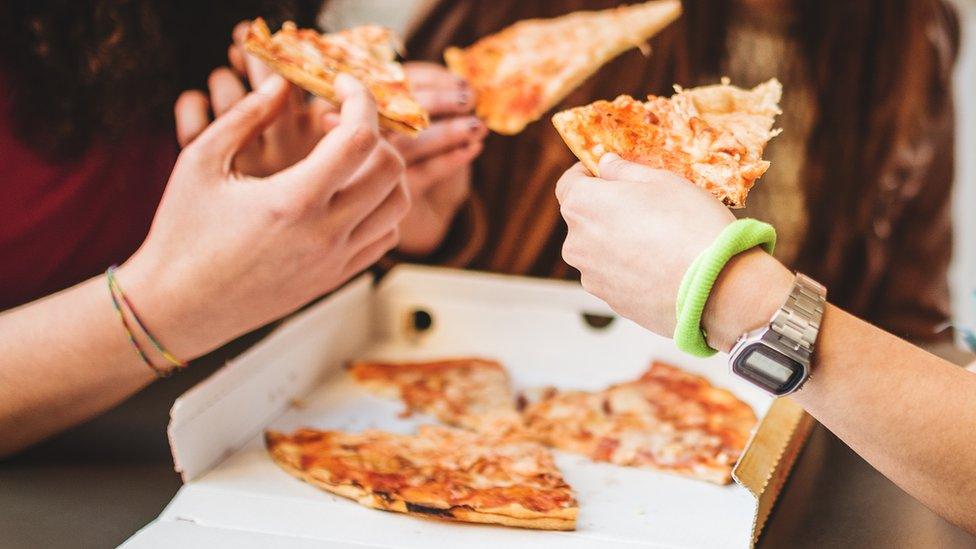
Eating too many takeaway meals increases children's calorie intake
Continuing on this kind of diet could increase the risk of heart disease and other health problems later in life, the research team warned, saying takeaways should be "actively discouraged".
When it comes to giving adolescents a taste of alcohol, well-educated parents of white children are the main culprits, research published in the Journal of Adolescent Health suggests.
But very few ethnic minority parents said they allowed early drinking - only 2%.
Using data on 10,000 children from the Millennium Cohort Study,, external researchers from from University College London and Pennsylvania State University found that light or moderate-drinking parents were just as likely to let their children drink alcohol as heavy-drinking parents.
Prof Jennifer Maggs, lead study author, said: "Parents of socially advantaged children may believe that allowing children to drink will teach them responsible use or may in fact inoculate them against dangerous drinking.
"However, there is little research to support these ideas."
Previous research has shown that those who start drinking early are more likely to do badly at school, have behaviour issues, and develop alcohol problems in adulthood.
Official medical advice recommends that children don't drink alcohol until they are at least 15.
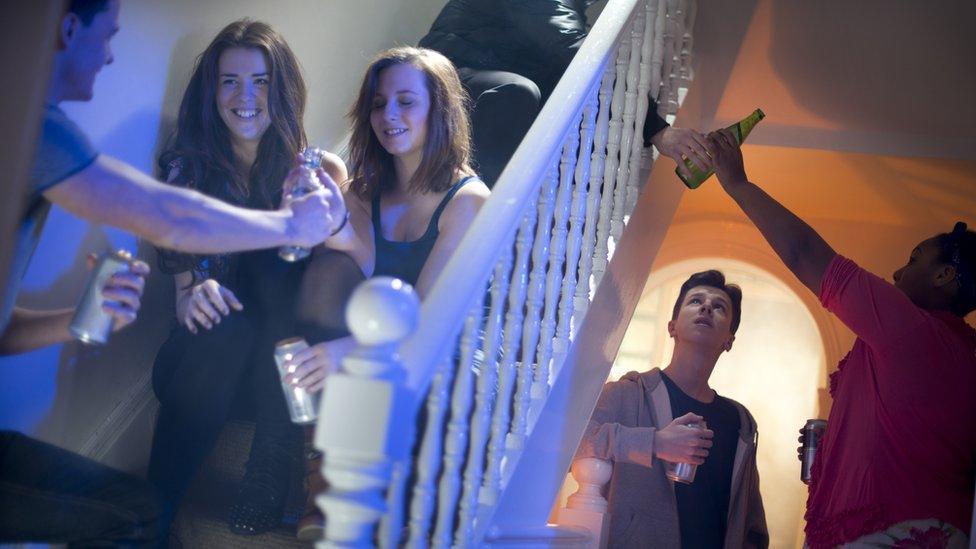
Set clear rules for teenagers and booze, experts say
In the survey, 14-year-olds themselves were asked whether they had ever tried more than a few sips of alcohol, with almost half saying yes.
When they were 11, about 14% had done so.
Katherine Brown, chief executive of the Institute of Alcohol Studies, said an alcohol-free childhood was best and this advice may not be getting to parents.
"We need to see better guidance offered to parents via social marketing campaigns and advice from doctors and schools.
"Parents deserve to know they can have a positive impact, and can reduce health harms associated with young people drinking."
Dr John Larsen, from the charity Drinkaware, said parents and guardians had an important role to play in helping children learn about alcohol.
"While each parent or carer may choose to approach talking to their teenagers about alcohol in different ways, it is helpful to have clear rules and that the conversations are open and honest."
How to talk to children about alcohol
Get the tone right - make it a conversation, not a lecture
Get the timing right - don't wait until they are going out of the door to meet friends
Find a hook - like a recent film or TV storyline to start the conversation
Be honest - it's far better to confess to what you did at their age
Set rules - teenagers feel safer if there are guidelines and boundaries
Drinkaware has more tips on strategies to prevent underage drinking., external
- Published14 December 2017
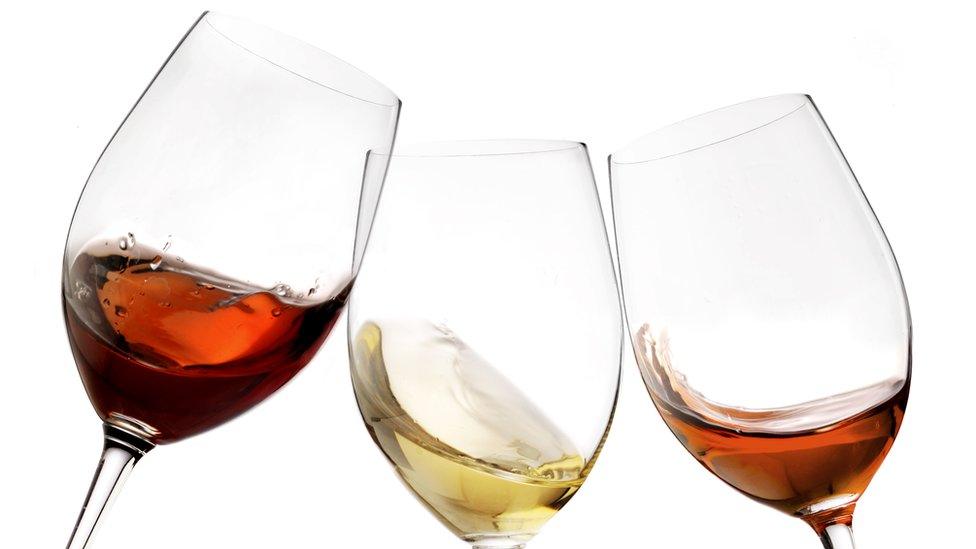
- Published19 August 2016
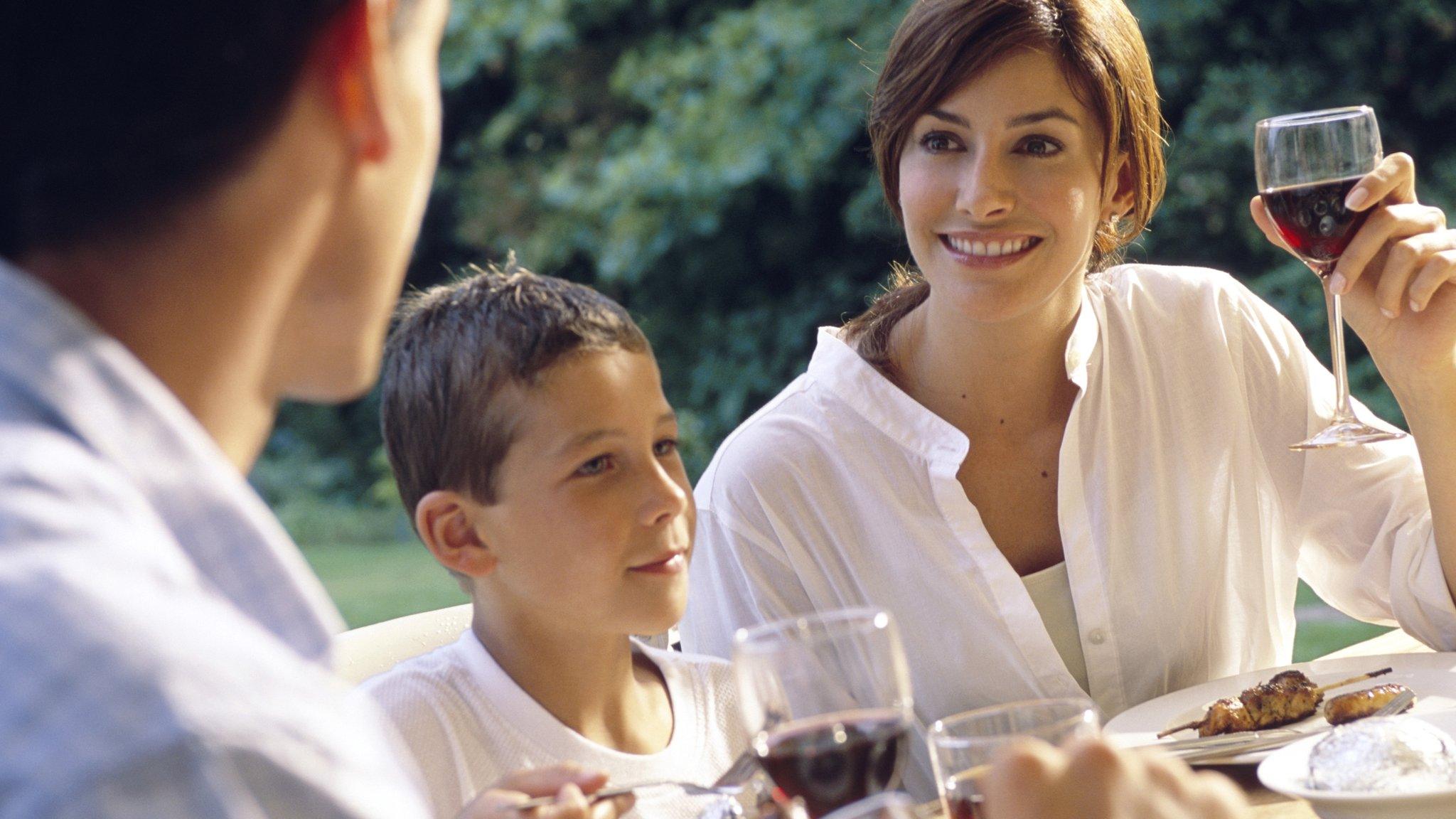
- Published23 May 2017
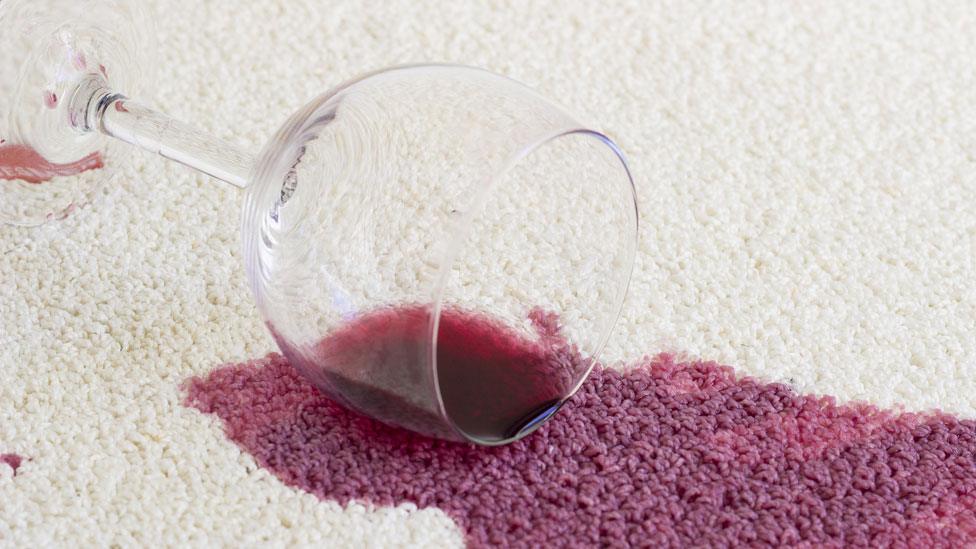
- Published9 January 2014
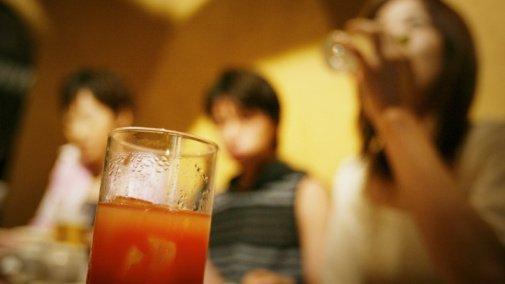
- Published12 September 2017
